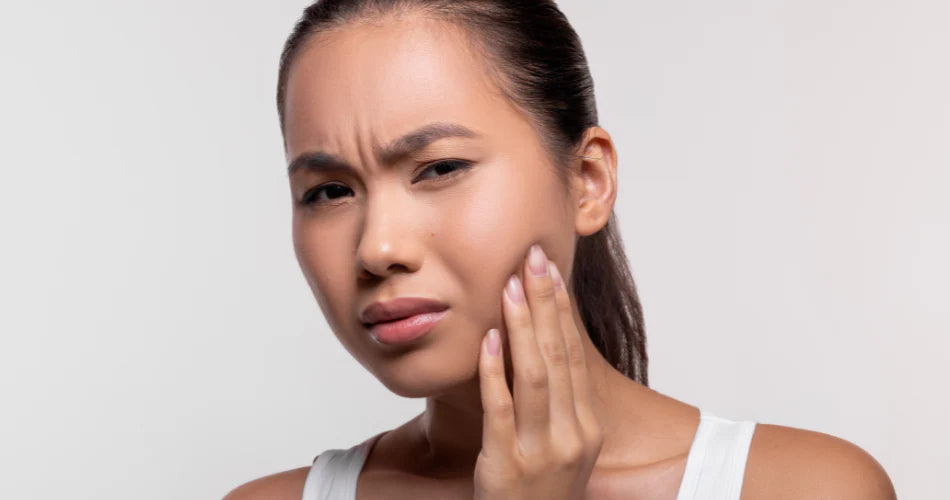
Tooth Pain After Whitening – Why Does It Happen and How to Relieve It?
Share
Why Does Sensitivity Occur After Teeth Whitening?
One of the most common side effects of teeth whitening is pain and sensitivity of the enamel. It can appear after professional procedures as well as when using whitening strips or gels at home.
Most whitening products contain hydrogen peroxide or carbamide peroxide, which penetrate through the enamel into the dentin, where the nerve endings are located. These nerve endings can become temporarily irritated.
The result is a sharp, stabbing pain, for example:
-
when drinking hot or cold beverages,
-
while brushing teeth,
-
or when breathing in cold air.
Is Sensitivity After Whitening a Cause for Concern?
Not always. Mild sensitivity is normal and in most cases subsides on its own within a few days to weeks.
However, if:
-
the pain lasts longer,
-
is intense,
-
or makes daily activities difficult,
it’s best to consult a dentist to rule out other causes.
How to Relieve Pain and Sensitivity After Teeth Whitening?
1. Use a Special Toothpaste for Sensitive Teeth
The best way to reduce discomfort after whitening is to use a toothpaste with active ingredients such as:
-
Potassium nitrate – reduces nerve sensitivity,
-
Stannous fluoride – strengthens enamel and protects against external factors,
-
Calcium hydroxyapatite – helps repair microscopic damage.
Recommended product:
Crest Plus Cavity Protection Regular Paste 232 g – an ideal toothpaste after whitening. It brightens teeth while protecting against sensitivity – a beautiful smile with no compromises!
2. Take Breaks Between Whitening Applications
If you use at-home products like whitening strips, do not use them daily. Applying them every other day is recommended to give your teeth time to recover.
3. Avoid Extremely Hot, Cold, and Acidic Drinks
During recovery, limit:
-
ice-cold or very hot drinks,
-
citrus juices,
-
carbonated drinks.
Even this simple change can significantly reduce tooth pain after whitening.
4. Use a Soft Toothbrush and Gentle Brushing Technique
Hard brushes and aggressive brushing can make sensitivity worse. Choose a soft-bristled brush and clean your teeth gently but thoroughly. Your enamel will thank you.
